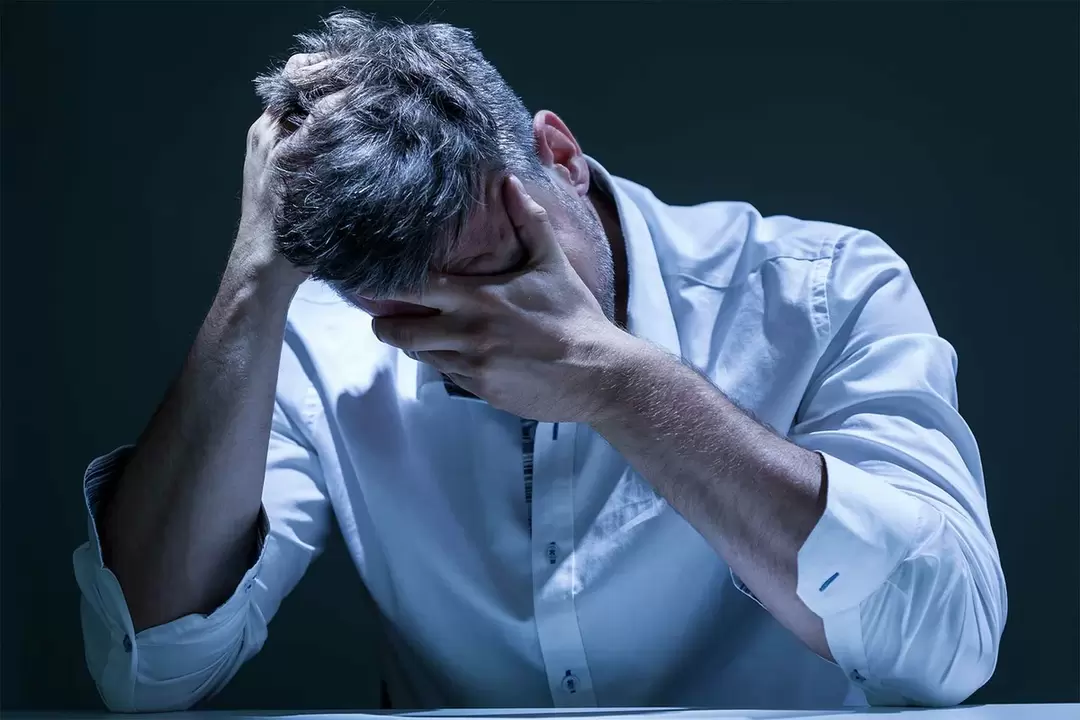
The term "prostatitis" refers to a chronic or acute inflammatory process of any etiology that occurs in the prostate. As the prostate is an exclusively male organ, prostatitis only develops in men. There are many types of prostatitis, but any type of prostatitis can be divided into acute and chronic.
Acute prostatitis occurs under the influence of many factors - the presence of bacteria, viruses, protozoa, under the influence of malnutrition, a sedentary lifestyle, bad habits and others. >
The prostate is an external secretion gland, that is, the secret it produces enters the external environment. In humans, the prostate is an unpaired organ whose activity depends on male sex hormones, in particular androgenic and steroid hormones.
The prostate is located behind the bladder, squeezing the initial part of the urethra, into which its ducts open.
It is precisely because of its location that the prostate owes one of its functions - during an erection, it blocks the exit from the bladder. It is the prostate gland that is responsible for the sensation of orgasm, this happens due to the gland's abundant supply with nerves, that is, innervation.
Temperature
One of the first signs of acute prostatitis, regardless of the causes of its occurrence, is an increase in temperature. As with any other inflammatory process that takes place in the body, the temperature rises to subfebrile values - that is, around 37. 5-380FROM.
In addition, the more intense the immune response, that is, the body's response, the greater the rise in temperature. That is, at the height of the disease, the body temperature can rise up to forty degrees.
Of course, just an increase in temperature cannot indicate the occurrence of prostatitis.
Usually, the first symptoms of prostatitis are difficulty urinating with the use of additional muscles - the abdominal muscles, violations of the ejaculation mechanism, itching, burning and other uncomfortable phenomena in the perineum or genitals.
frequent trips to the bathroom
In addition, this is an increased urge to urinate (with a small amount of urine being released), a feeling of "residual urine" after emptying the bladder, an unpleasant orgasm, and as a result, a decrease in libido.
general weakness
As with any other inflammatory disease, there is an intoxication syndrome, which includes general weakness, decreased performance, nausea, and possibly vomiting.
There is also a disorder of the nervous system - depression, irritability and others.
What causes prostatitis
There are also predisposing factors for prostatitis - hormonal imbalance including age, prolonged sexual abstinence, smoking, general hypothermia, stool retention, sedentary lifestyle, lack of physical activity, overheating, chronic sciatica in history, immunodeficiency states, age-related changes in the body .
It is worth paying special attention to a predisposing factor such as inflammatory diseases of the kidneys and urinary tract, as the infection can spread upward.
It turns out that the disease begins with urethritis
The initial stage of prostatitis is characterized by a fairly typical clinical picture - lethargy of the urinary stream, frequent urge to urinate, fever. Possible pain in the perineum. Often there is a violation of sexual function.
However, sexual dysfunction is more of a psychological, physiological or clinical weeks. The ejaculation process itself does not bring pleasure or even causes pain, to which a conditioned reflex develops, which leads to a decrease in libido.
Purely physiologically, prostatitis can lead to lack of potency only at a later stage. The initial stage is also called the "first signs" stage - the beginning of urination does not occur immediately, as usual, but with a small delay.
Already at this stage, the prostate is enlarged, but nevertheless painless on palpation. At the same time, the edges of the prostate are well palpated, and the median sulcus is palpated - as usual. The most interesting thing is that the stage of the first signs can last quite a long time - up to three years.
Patients of urologists in recent years are becoming younger and younger. That is, the inflammation of the prostate "gets younger". This is due to the development of "outrageous" recreation - surfing, diving, skiing and kayaking. With inadequate loads and complete body hypothermia, prostatitis can occur.
And, paradoxically, a very "calm" lifestyle can also predispose to the development of prostatitis. This is due to the stagnation of blood and lymph in the pelvis - a sedentary and sedentary lifestyle is not the best way to disperse blood in the organs.
Inflammatory diseases not sufficiently cured, which may not be associated with Organs pelvic organs, are also predisposing factors for prostatitis. This is due to the fact that infection (of any etiology) from the primary focus is able to penetrate hematogenously or lymphogenically into the prostate. In the presence of congestion in the pelvis, the infection sets in and begins to multiply.
It also happens that prostatitis occurs due to stress. Stress weakens the immune system, thus increasing the risk of prostatitis.
STDs - "sexually transmitted diseases" - one of the main causes of prostate inflammation. Gonorrhea, if not treated properly, almost always causes prostatitis.
However, don't forget that you can't go from one extreme to the other. With prolonged sexual abstinence, stagnation of blood and lymph in Organs pelvic organs is formed again, a secret stagnates in the prostate, which leads to prostatitis.
The prognosis for timely detection and proper treatment of this disease is favorable, however, if the disease is left to chance, chronicity or the addition of a secondary infection is possible, which will have rather sad consequences.

























